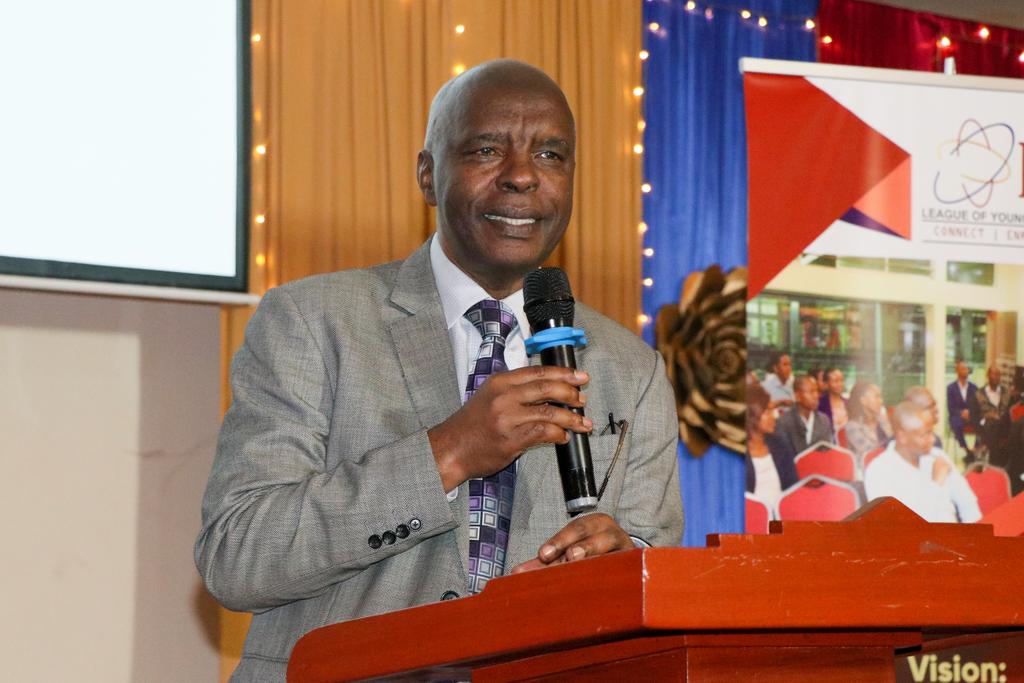 Former Makueni governor Kivutha Kibwana. KIVUTHA KIBWANA/X
Former Makueni governor Kivutha Kibwana. KIVUTHA KIBWANA/X
Former Makueni governor Kivutha Kibwana has poured cold water on government claims linking former Deputy President Rigathi Gachagua to the Gen Z-led protests.
In a pointed post on X Thursday morning, Kibwana questioned the logic of accusing Gachagua of masterminding a movement that erupted months before his removal from office.
“Mountainman RG was impeached October 2024. Gen Z uprising debacled June 2024. Help me with the maths!” he wrote.
“How could Rigathi the former Deputy President be the midwife of the youth movement? We must come to terms with the emergent youth power. They want to fix Kenya for all of us!”
His comments follow a growing narrative from state officials suggesting that political players are behind the protests that have rocked the country since June last year.
At the centre of the controversy is Gachagua, who has denied any links to the mobilisation of young people.
The nationwide protests, which began in June 2024 against the controversial finance bill, have since widened into a broader national movement against corruption, police brutality and the high cost of living.
They resurfaced on June 25, 2025 not just to mark the first anniversary of the revolt, but to demand justice after the death in police custody of blogger and teacher Albert Ojwang.
Ironically, face mask vendor Boniface Kariuki was shot in the head at close range by anti-riot police officer dispersing protesters.
He succumbed to his injuries days later and was buried on July 11 in Kangema.
In a statement on June 26 after Kariuki's shooting, Gachagua condemned the violent police crackdown on protesters “in the strongest terms possible"
“I condemn the use of excessive force and live bullets by the police on peaceful and unharmed Gen Z protesters witnessed yesterday across the country,” Gachagua said.
The former DP, who has fallen out with the Ruto administration, dismissed claims that the youth-led movement is politically engineered.
“The Gen Z protests do not need anyone to finance them. Gen Z are tribeless, without structure or direction,” he told President Ruto.
“You promised our young people jobs and economic liberation. You know what you have delivered.”
On July 7, Kenyans across the country held another series of protests in commomeration of the Saba Saba uprising, but were largely contained by police.
Police said 11 people died during the July 7 protests alone, although rights groups and witnesses put the number higher.
According to the Kenya National Commission on Human Rights, 31 people were killed in the latest wave of unrest.
Interior Cabinet Secretary Kipchumba Murkomen has maintained a tough stance, describing the protests as an attempt to destabilise the government.
“This is an unconstitutional attempt to change the regime,” Murkomen said in a number of media briefings since the revolt.
The CS came to the defence of police saying they acted within the law in containing people he described as criminals keen on overthrowing the government through unconstitutional means under the guise of protests.
“I want to thank our police officers for a job well done. There is no police officer who committed any excesses.”
Speaking in Tana River on Thursday, Murkomen said those found culpable of igniting violence, looting and acts of terrorism will be held to account.
President Ruto went further, branding the protests a national security threat.
In remarks that sparked outrage among rights groups, Ruto told officers to shoot protesters in the legs.
“Shoot their legs so they break and they can go to hospital on their way to court,” he said.
“Those attacking police are terrorists. They are not protestors. They are criminals. And they are engaged in a war with the government.”
The President suggested that the protests were being exploited by political opponents seeking to topple his administration.
But Gen Z demonstrators have repeatedly stated they are not aligned to any political party.
Their demands, shared widely through social media, focus on police accountability, economic reform, and youth inclusion in governance.
As the protests grow in scale and organisation, Kibwana’s message appears to resonate with many.
Rather than scapegoating political figures, he argues, the government should acknowledge the legitimacy of the youth movement and listen to their concerns.













